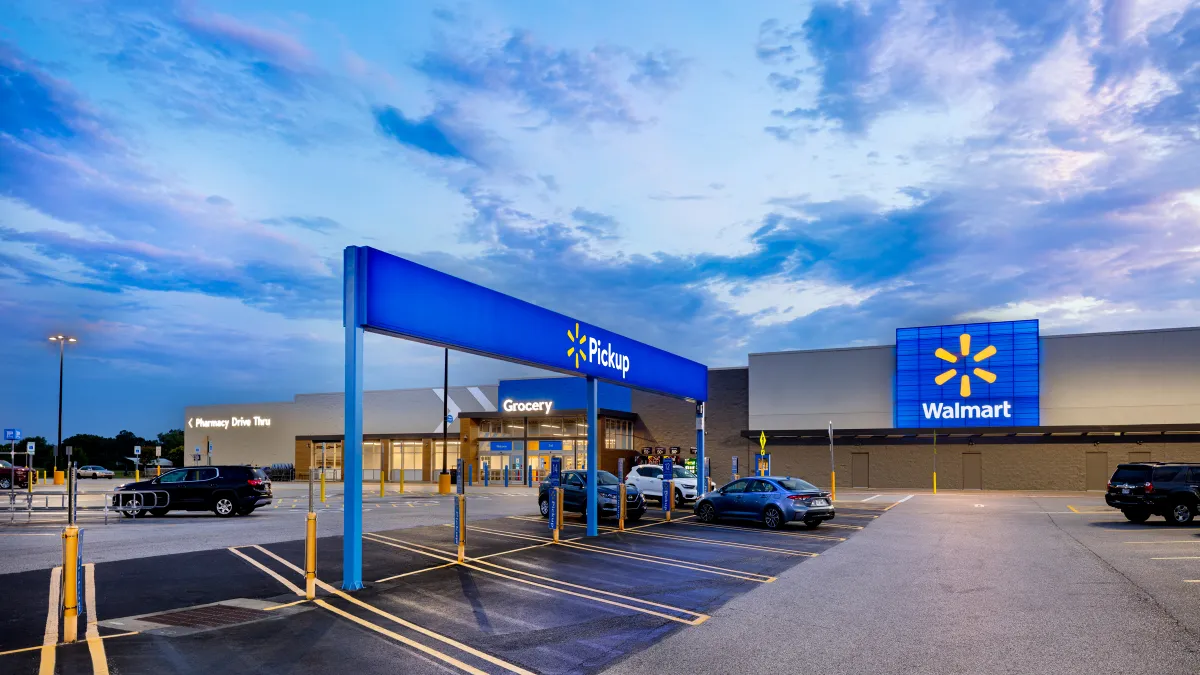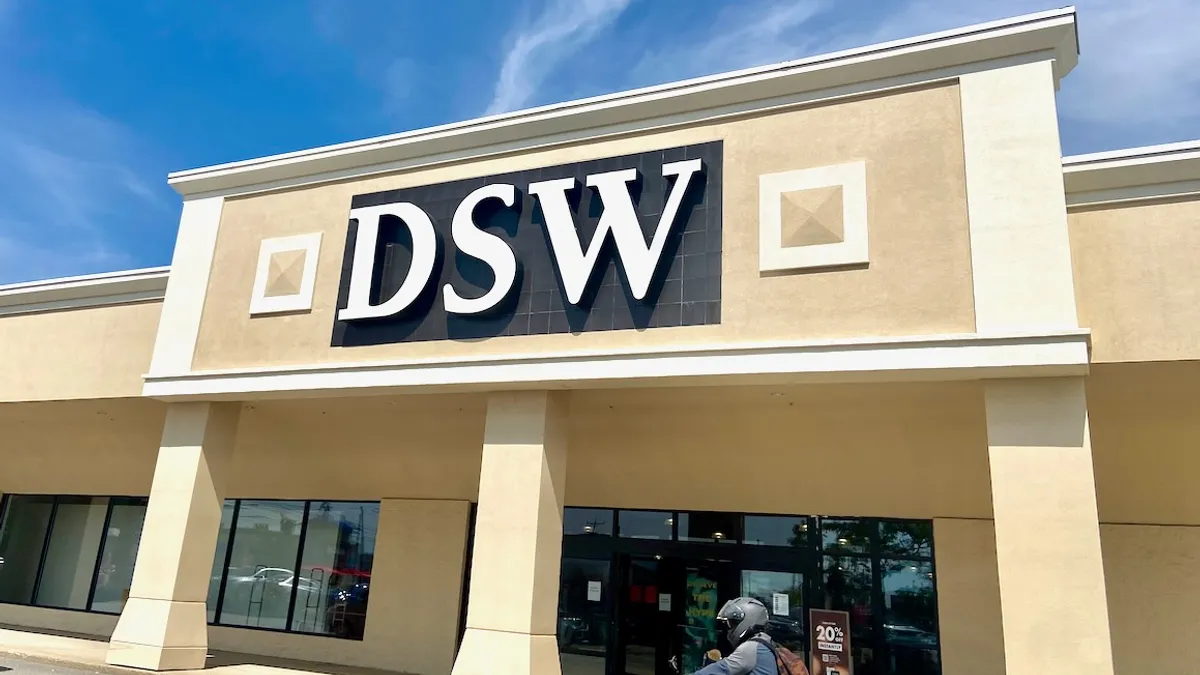In its latest move to capitalize on the spending of its broad customer base, Walmart is expanding its offerings beyond its core business by building a fintech startup.
The Bentonville, Arkansas-based retail giant last week announced plans to create a fintech startup with Ribbit Capital — a company with a history of backing several players in the space, including Robinhood, Affirm and Credit Karma.
Walmart will own a majority of the startup but didn't give specific details on the deal. However, the company's expansion to other non-retail categories like veterinary and human health clinics and its plans to gain partial ownership of social media app TikTok suggest attempts to grow outside retail.
"I think it's a natural complement to their retail strategy," said Greg McBride, Bankrate's chief financial analyst. "Extending their reach allows them to have even greater share when it comes to consumers and their money, not just how and where they spend it, but how and where they manage it."
The retailer has the potential to be a big player as soon as it enters the fintech industry because of its massive scale, McBride said. Unlike typical fintech startups, Walmart already has capital, millions of loyal customers and over 2.2 million associates, according to the company website.
Though fintech and banking might seem beyond Walmart's scope, this isn't the first time the retailer sought to break into financial services.
Walmart unsuccessfully pursued a banking license in 2005 through an Industrial Loan Company charter. Walmart ended up withdrawing the charter application two years after receiving opposition from a coalition of bankers and other credit institutions.
"I think some things that are unique about what they're doing right now is that they've partnered with a private equity or venture capital firm to get this going, and it's a firm that has experience in the fintech arena," McBride said. "It also is going to be focused on fintechs, and not necessarily an in-store presence, [which] had been the concern of banks 15 years ago."
The startup's board includes John Furner, president and CEO of Walmart U.S., Walmart Executive Vice President and CFO Brett Biggs and Meyer Malka, managing partner of Ribbit Capital, according to the release.
A history of retailers in lending
Retailers have a long history of offering financial services to their customers through lending, said Ken-Hou Lin, associate professor of sociology at the University of Texas at Austin and co-author of "Divested: Inequality in the Age of Finance."
Lending was a primary way for retailers "to sell more expensive items such as pianos or appliances," he told Retail Dive through emailed comments. "However, these companies did not plan to profit from lending. They hoped the consumers would pay off their debt as soon as possible."
Financial services exist in retail today through banking products like loans, credit cards and checking accounts, Lin said. Collecting relevant data is a more recent advantage in providing these services in retail stores.
"By following the transaction records of their consumers, they can do targeted advertisement and have a better sense of consumption preferences," Lin said.
Seeking banking charters could now be easier for Walmart and other corporate giants, after the Federal Deposit Insurance Corporation approved a final rule last month that made the path smoother for non-banking institutions to become lenders and redefined what a bank is. The decision came as several nonbanks like Japanese e-commerce company Rakuten pursued industrial loan company charters in 2019.
Lawmakers in recent years have opposed the idea of commercial companies getting charters. Sen. John Kennedy, R-LA, introduced a bill in November 2019 that would "close loopholes" and prevent nonfinancial companies from receiving bank charters.
"If they're allowed to handle your banking services, they're going to turn into continents," he said at that time. "The Federal Reserve exists for a reason. The Rakutens and the Googles of the world shouldn't be able to circumvent the Fed."
Growth opportunities
Despite restrictions, Walmart has already made moves that gave the company some knowledge on how its consumers react to financial services. Walmart has formed partnerships with Green Dot to offer prepaid debit cards called MoneyCard and Affirm to offer installment payment options. Walmart MoneyCenters also allow customers to cash in checks and send money abroad.
In announcing the new startup, Walmart said it intends to engage in more partnerships and acquisitions with other fintech firms to grow the startup.
The retailer also said it plans to fill its startup's management team with fintech leaders and add independent industry experts to the board.
While Walmart has yet to outline the startup's blueprint, bringing its financial services in-house means the retailer has more control and profit potential, said Charlie O'Shea, Moody's lead analyst for Walmart.
The goal of Walmart may be to provide a solution to its core constituency who have been hit the hardest by the pandemic's economic fallout, said McBride.
"A lot of lower-income households are unbanked or underbanked, and they don't oftentimes trust traditional financial brands," he said. "Walmart has a lot of brand loyalty."
Alibaba has built a similar system in Asia where it has merged its retail business with financial services. And just this month, Walgreens announced it is launching credit cards and prepaid debit cards in the second half of the year as part of an extensive push to expand its financial service offerings.
"In Walmart's case, they don't offer any third-party leasing products in the stores in either the Walmart Supercenters or the Sam's Club stores, and that's a potential opportunity going forward," O'Shea said. "That's something that several retailers are doing, with reasonable degrees of success, because you take care of your customer, you preserve that relationship."
The startup could go in plenty of directions, said O'Shea. The challenge for Walmart is which direction to take first and how fast it wants to implement plans, he said.
O'Shea said he expects the company to be nimble but deliberate in its strategic planning. The initial financial service offering of the startup might even evolve in the next few years.
"This company does not make rash decisions," he said. "It's been on management's mind for a long time. They found a partner, and now they're going to execute."






















